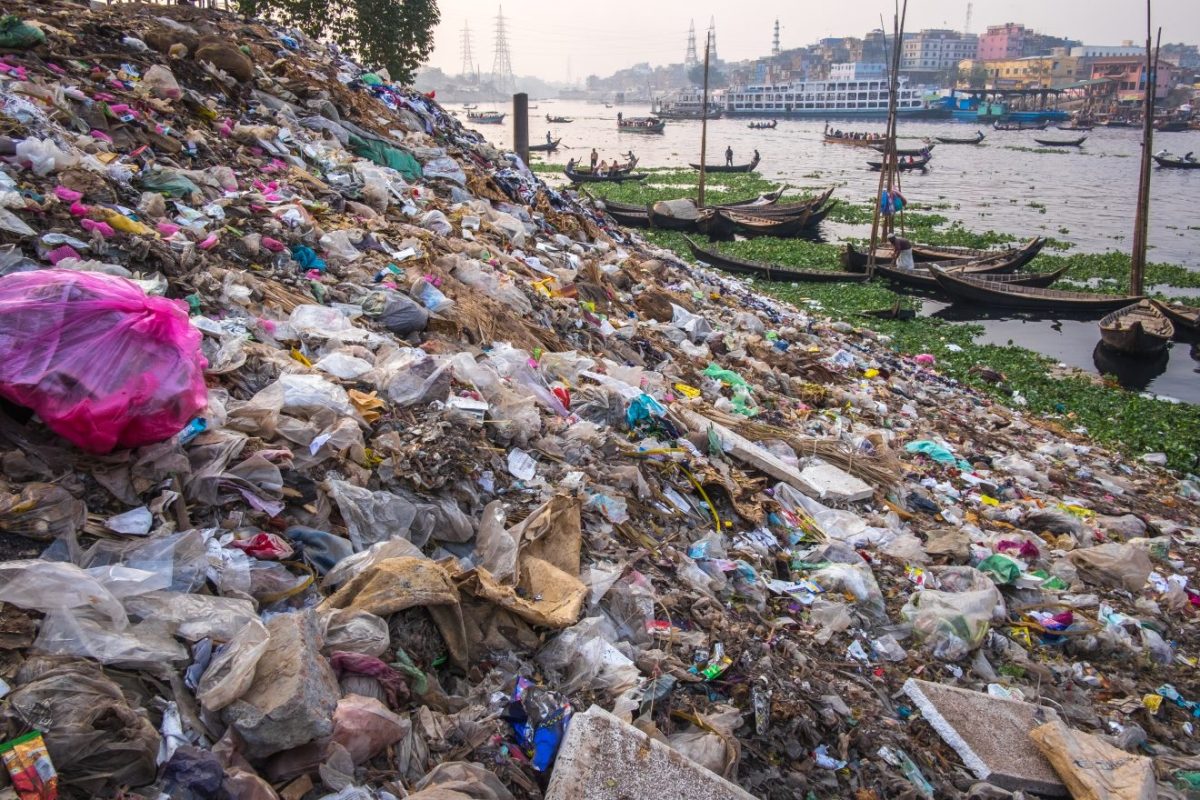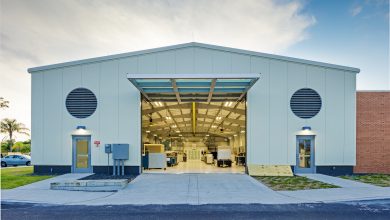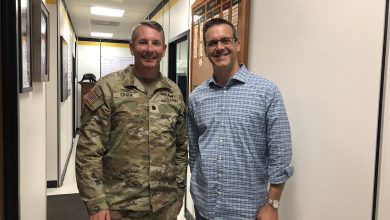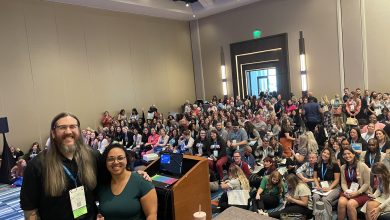Could Waste Be The Solution?
Inspired by the environment in their country of origin, three Bangladeshi researchers are working to find a solution— making a difference back home and beyond.
“Joy Bangla.”
First appearing in a 1922 Bengali poem, the national slogan of Bangladesh means “Victory to Bengal.”
It is deeply ingrained in the country’s society and has remained a powerful notion through the decades, to the point that it was officially declared the national slogan in 2022.
The spirit that “Joy Bangla” represents, built on love and admiration for their country, lives in the Bangladeshi people. It lives in Toufiq Reza, Al Ibitda Sultana and Md Tahmid Islam.
Originally from Bangladesh, the three Florida Tech researchers are studying renewable energy sources via waste, with the goal of putting their findings to use in their homeland—and the wider world.
“Helping Bangladesh, or helping developing countries, has always been in the back of my mind,” Reza says. “I know the problem because I grew up over there.”
Helping A Country
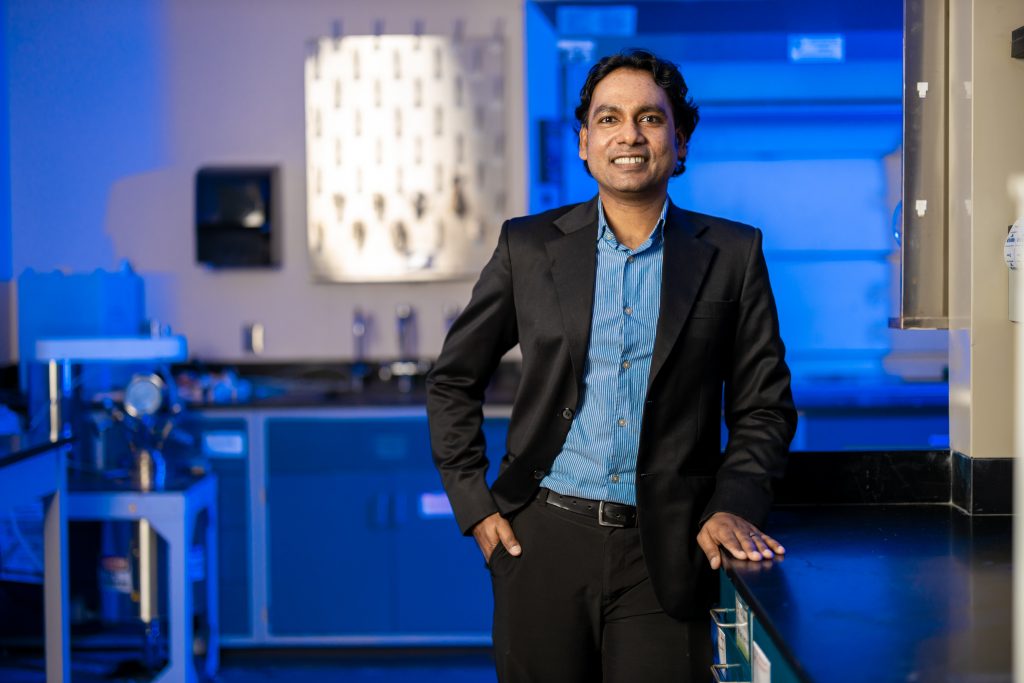
Reza, a biomedical and chemical engineering assistant professor, has been across the globe on his research journey, with stops from Nevada to Germany. His roots, however, remain in Bangladesh.
Growing up there, Reza saw ways he could make his homeland better for its citizens. Years later, now a distinguished engineer, he has begun to focus on how his work could improve his beloved homeland.
As one of the fastest-growing countries in South Asia, Bangladesh is expected to experience a rise in energy demand. However, fossil fuel reserves in the country of 180 million people have been depleted.
But Reza and others may be able to find a silver lining to that energy consumption: an organic material byproduct called “biogenic waste,” which degrades with time, polluting the environment.
In 2021, Reza and researchers from Bangladesh University of Engineering and Technology (BUET), Bangladesh Agricultural University and University of Dhaka received a three-year, $174,000 international grant from the National Academy of Sciences, Engineering and Medicine, and the United States Agency for International Development that allowed them to examine the use of biogenic residue in Bangladesh to create clean energy, such as hydrogen production.
The team is researching how to convert biogenic waste into hydrogen that could then be distributed inexpensively across the country via low-risk, accessible, modular hydrogen-generation distribution systems.
The project proposes an innovative process that uses biogenic residues for renewable hydrogen generation on the modular scale. Anaerobic co-digestion, biogas cleaning, catalytic hydrogen generation and management of by-product digestate—the material remaining after the anaerobic digestion of a biodegradable feedstock—will address current operations and maintenance issues and waste management limitations of ongoing biogas programs in the country.
“I was raised in Dhaka, Bangladesh, one of the most densely populated cities in the world. We were accustomed to scheduled blackouts every day due to the lack of electricity generation compared to the electricity demand,” Reza says. “With the natural gas deleting out gradually and not much land to dedicate for energy production, I was concerned about the future of the energy sector in Bangladesh. But knowing that more people mean more waste, I was always keen to find a way to convert waste to energy.”
With the natural gas deleting out gradually and not much land to dedicate for energy production, I was concerned about the future of the energy sector in Bangladesh. But knowing that more people mean more waste, I was always keen to find a way to convert waste to energy.”
Toufiq Reza, assistant professor, biomedical and chemical engineering and Sciences
In an earlier project, Reza and Ohio University associate professor Derek Kauneckis began researching an element of the waste-to-energy plan under a nearly $2 million National Science Foundation (NSF) grant.
The project, titled “INFEWS/T2: Organic Waste Lifecycles at the Interface of Food, Energy, Water Systems (OWL-FEWs),” examined the development of radio-frequency identification technology for tracking organic waste in the waste system.
The approach used a barcode or other signature to identify the waste and then inform the user of that information, thus helping make possible this project’s primary goal of analyzing what waste could be turned into renewable resources.
Reza’s role in the NSF-funded project was to develop technology that can chemically convert appropriate organic waste into renewable natural gas and filtration media that could then be used to help purify wastewater produced in that process.
Resiliency Through Research

Al Ibtida Sultana is a third-year doctoral student working with Reza on renewable energy research. Born in Kuwait but raised in Bangladesh’s capital, Dhaka, Sultana saw how the region was severely impacted by flooding. With its low elevation and location on the Ganges Brahmaputra Delta, the region is flooded approximately 18% to 20% each year on average. When there’s a severe flood, approximately 75% of the country could be flooded.
Seeing how flooding affected her region got Sultana into science in middle school.
“I loved drawing the water cycle, so that started off my point of realizing how interdependent we are,” she says. “As I grew up and learned more about science, I realized this interdependency is very crucial. If the utilization of fossil fuels is having an impact on global warming, that’s when I realized, ‘Okay, what alternative fuels are there to be used, and how can this global climate change be detoured eventually?’”
Sultana found she loved chemistry and math, and she was intrigued by chemical engineering, which she felt provided a platform for her to explore the different faces of the discipline and how to apply it to everyday life.
“Always witnessing the flooding and the poor people—they’re losing their land, they’re losing their family, whatever they have,” she says. She wondered, “‘What could I do … to be there at the frontier of research into global climate change?’” That’s when she got into clean energy research.
When Sultana was a senior at BUET, she did a clean energy project, which led her to explore more clean energy avenues, and she contacted Reza through alumni at her university. She ended up coming to Florida Tech to work on more sustainable research with him.
At Florida Tech, Sultana has studied food waste and how it can be thermochemically converted to develop microporous hydrogen storage materials. This material can be used to store hydrogen, as well as greenhouse gases, such as carbon dioxide, which could be captured to prevent global warming. She is also researching the upcycling of other type of wastes, like agricultural and plastic, into ultraporous adsorbent materials. Her breakthrough research findings have earned her recognition as Outstanding Graduate Student presenter in several conferences as well as Florida Tech’s 2021–2022 Outstanding Student of the Year award in chemical engineering.
In addition to her home country, Sultana was inspired by her parents. Her father worked in a refinery, shifting duties each day. She saw him coming home from work tired but happy he gave his best. He was recognized as the top employee for consecutive years. At a young age, Sultana’s mother shouldered the responsibility of taking care of the household, which included Sultana and her younger siblings. Despite severe challenges, Sultana’s mother eventually earned her Bachelor of Arts.
“Working harder with utmost honesty and devotion like my father, while aiming high with utmost resilience to achieve like my mother is what constitutes my strong principles of being always highly motivated and in complete love with my own passion for research,” Sultana says.
Making a Difference

Md Tahmid Islam is also a third-year doctoral student with a path to Florida Tech similar to Sultana’s. After earning his undergraduate degree at BUET, Islam got in contact with Reza and ended up coming to Florida Tech.
Islam’s passion for his research started during his undergraduate studies. A senior thesis saw him examining wastewater treatment and believing the water could be purified in a more natural way, such as natural coagulants and flocculants.
“From there, I had an inclination toward the waste material, like wastewater or waste materials—how can we utilize it?” Islam says. “Or how can we purify it? When I graduated in April 2019, I contacted Dr. Reza; he was just about to join Florida Tech. … From there, I got to know what he’s working on and what is his vision in next 10 years or next 20 years.”
Working with Reza on waste energy research, Islam converts agricultural wastes into a solid, coal-like fuel through hydrothermal carbonization. The goal is to upgrade low-cost biowastes into useful fuel that could replace fossil-based fuels.
In that research, Islam has found that the waste biomass has high hydrophilicity, meaning it attracts water. To make the biomass not degrade when interacting with water, Islam converts the waste biomass into a product called “hydrochar” by using the hydrothermal carbonization process. Having biomass that is less absorbent of water is better for producing energy.
Living in Bangladesh, Islam saw the huge amounts of waste being produced by the growing population. He would like to use his research for industry, as well, and envisions developing a team that can explore renewable sources for both the energy sector and other industries using that hydrothermal carbonization technology. It all starts with research, he says.
“I think research actually exposes your potential for critical thinking, your method development, how you can utilize your ideas, your understandings toward the problem—and then come up with a better solution. I think it develops you, develops your mind well that you can actually grow if you do more research.”
The influential research conducted by these three Panthers is already making impacts in Bangladesh.
In spring 2022, a delegation from the Bangladesh Energy and Power Research Council (BEPRC) visited Florida Tech. After stopping by the Reza lab and meeting with the university’s Bangladesh Student Association, the team is keen to collaborate with Florida Tech, especially on its clean energy research, seeking to train government officials and academic faculty from Bangladesh to Florida Tech. These officials could then gain expertise on the clean energy technologies being developed and implement them in Bangladesh—the ultimate success.
Joy Bangla.
This piece was featured in the spring 2022 edition of Florida Tech Magazine.

